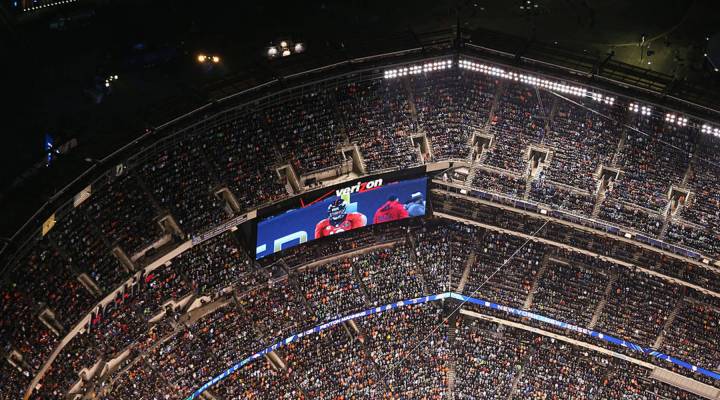
Will politics take the field in Super Bowl ads?

Between the Super Bowl kickoff and the end of the game, estimates are that brands will spend more than $385 million on ads.
All of them are trying to capture the attention of the more than 100 million people watching at home, and at least some of them are looking to smooth over the divisions created by an ugly election season and tumultuous start to the year.
So what, if any, marketing salve can we expect ?
Poop jokes.
Poop jokes with patriotic music. And undertones of unity. Courtesy of Febreze.
Many marketing experts expect brands to aim for those things — unmentionable and otherwise — that we have in common.
“A message not red or blue,” said Mike Sheldon, CEO of ad agency Deutsch, “but a purple message.”
Sheldon hopes ads will deliver a message that says, “Contrary to what you are feeling right now, the country is way more united than divided.”
But some brands have produced ads that are likely to land them right in the middle of current political debates. Intentionally or not.
Take this ad from “Avocados From Mexico.”
Avocados are typically not considered a politically divisive food.
But these are unusual times. There’s debate over President Donald Trump’s proposed wall and discussions of tariffs on products from Mexico.
Still, Brent McGoldrick, CEO of Deep Root Analytics, isn’t expecting the spot will cause too much controversy.
“The sheer amount of guacamole that’s being consumed on Super Bowl Sunday is such that anyone concerned about the ad would probably also be eating avocados from Mexico.”
(Turns out avocados from Mexico has about 80 percent of the U.S. avocado market.)
Then there’s this spot, from Budweiser, imagining one of the company’s co-founders, Adolphus Busch, immigrating to America.
“It’s an idea we’ve been developing along with our creative agency for nearly a year,” Marcel Marcondes, Anheuser-Busch vice president of marketing, said in a statement. “We believe beer should be bipartisan, and did not set out to create a piece of political commentary; however, we recognize that you can’t reference the American Dream today without being part of the conversation.”
Trying to thread the needle of cultural relevance without upsetting millions of football watchers is a tricky and expensive bet.
Super Bowl ads cost “at least $5 million for 30 seconds,” said Charles R. Taylor, a marketing professor at the Villanova University School of Business.
There’s also the cost of producing the ad, which Taylor said “can easily go into the millions.”
Then there’s the social media campaign around the ad, another couple million bucks.
And if a brand or ad agency gets it wrong — if they drive people to hurl nacho cheese at their TVs — it’s even costlier.
“It’s not that we don’t recoup our $10 million,” said Derek Rucker, marketing professor at the Kellogg School of Management at Northwestern University, “we may have to launch another campaign to undo the damage we did.”
He points to some spectacular flops from Super Bowls prior.
Like Nationwide’s dead kids ad.
Or Groupon’s Tibet ad.
Given the divisiveness of the election, Rucker said it’s easier than usual to unintentionally offend someone.
“No matter who wins, when there’s a lot of turmoil, that means be careful.”
Rucker expects most brands will tilt toward funny, upbeat types of ads, featuring animals, celebrities, even the bathroom — the things we have in common.
There’s a lot happening in the world. Through it all, Marketplace is here for you.
You rely on Marketplace to break down the world’s events and tell you how it affects you in a fact-based, approachable way. We rely on your financial support to keep making that possible.
Your donation today powers the independent journalism that you rely on. For just $5/month, you can help sustain Marketplace so we can keep reporting on the things that matter to you.












